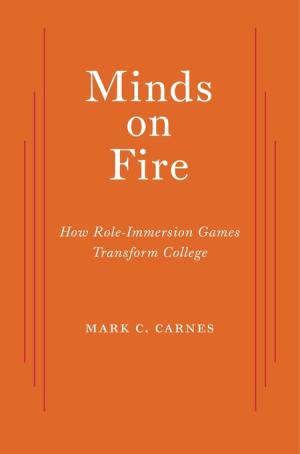Resources
One page Teaching Tactic: in groups, students perform roles of different theorists as they discuss case studies in ministry.

Click Here for Book Review Abstract: Why are so many students intellectually disengaged? Faculty, administrators, and tuition-paying parents have been asking this question for nearly two centuries. And the answer is always more or less the same: students are so deeply absorbed in competitive social play (fraternities, sports, beer pong, World of Warcraft, social media) that they neglect academics. In Minds on Fire, Mark Carnes shows how role-immersion games channel students’ competitive (and sometimes mischievous) impulses into transformative learning experiences. His discussion is based on interviews with scores of students and faculty who have used a pedagogy called Reacting to the Past, which features month-long games set during the French revolution, Galileo’s trial, the partition of India, and dozens of other epochal moments in disciplines ranging from art history to the sciences. These games have spread to over three hundred campuses around the world, where many of their benefits defy expectations. Students think more critically by internalizing alternative selves, and they understand the past better by filtering it through their present. Fierce competition between opposing sides leads to strong community bonds among teammates and develops speaking, writing, leadership, and problem-solving skills. Minds on Fire is a provocative critique of educational reformers who deplored role-playing pedagogies, from Plato to Dewey to Erikson. Carnes also makes an impassioned appeal for pedagogical innovation. At a time when cost-cutting legislators and trustees are increasingly drawn to online learning, Carnes focuses on how bricks-and-mortar institutions of higher education can set young minds on fire. (From the Publisher)
This teaching piece first invites the instructor to consider four criteria when planning a small-group discussion (class size, type of class, instructor preparedness, size of groups). Then, it briefly describes a great many variations on the small-group discussion, such as the jigsaw, the KWL, the fishbowl, the buzz group, the snowball, and several others. This lesson gives the instructor a solid start on a great many kinds of discussion activities.
Active Learning Techniques including Peer Instruction, Class Debate, Role-Playing, Case Studies, and Creative Scenarios and Simulations.
This University of Illinois resource provides all an instructor needs to get started with role-playing as an online (synchronous or asynchronous) learning activity: description, examples, goals & objectives, lesson outline and procedures, and guidelines for assessment and managing accessibility/accommodations.
A short, practical introduction to using online social media tools (like Twitter) to facilitate role-playing in courses involving literature or history.
Suggestions for using role-play with adult learners in online learning environments, both synchronous and asynchronous. Includes three models, student reactions, integration with Bloom's taxonomy, and assessment considerations.
Overview of How and Why to Use Role-Playing, Including a collection of role-playing scenarios
A simple "How to Use Role Playing Guide" that includes Define Objectives, Choose Context & Roles, Introducing the Exercise, Student Preparation/Research, The Role-Play,Concluding Discussion and Assessment
Focus is on using Role-Play to help historical figures come alive.